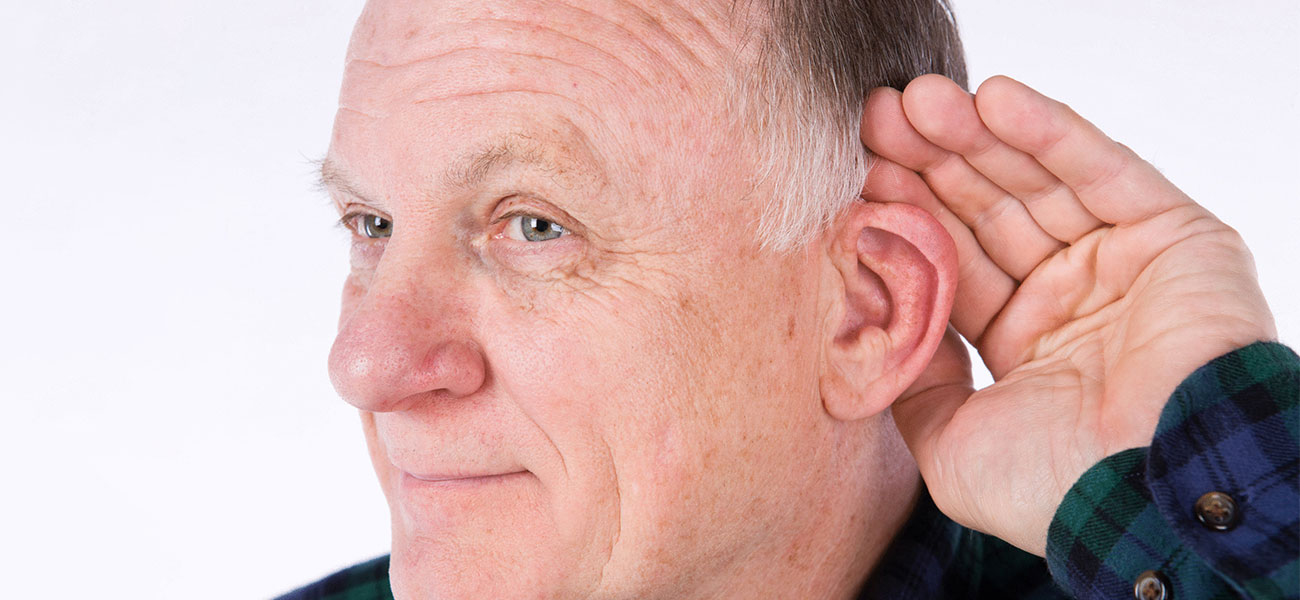What is Sudden Hearing Loss?
Sudden hearing loss is a condition that develops rapidly, usually within a short period of 72 hours, and causes a serious decrease in hearing level. This condition, which usually affects only one ear, can have a very negative impact on a person’s daily life and quality of life. Hearing loss can occur suddenly and prevent a person from hearing the sounds around them, which can make social and professional life difficult.
What are the symptoms of sudden hearing loss?
Symptoms of sudden hearing loss usually include a sudden decrease or complete loss of hearing. A person may suddenly have difficulty hearing sounds around them and may experience a feeling of fullness in the ear. It may also be accompanied by disturbing sounds such as tinnitus (ringing in the ears). Dizziness or loss of balance is another common symptom experienced by people with this condition.
What Could Be the Reasons?
There are several possible causes of sudden hearing loss. These include viral infections, blood circulation problems, autoimmune diseases, trauma to the eardrum, and stress or sudden pressure changes. Each can damage the auditory system and cause this type of loss.
Sudden Hearing Loss Treatment and Methods
- Corticosteroid Treatment: One of the first preferred methods in the treatment of hearing loss is corticosteroid treatment. These drugs, commonly known as “cortisone”, are synthetic versions of the cortisol hormone naturally produced in the body and help combat inflammation. Corticosteroids can control hearing loss.
- Medication: Medications that help improve blood circulation can also be used to treat hearing loss. These medications can resolve vascular occlusions and blood flow problems that cause hearing loss.
- Audiological Rehabilitation: In cases of permanent hearing loss, assistive devices such as hearing aids or cochlear implants may be used. These devices can help compensate for hearing loss.
- Physical Therapy: If symptoms such as dizziness are present, vestibular rehabilitation may be performed. This therapy is used to restore balance and reduce dizziness.
When Should You See a Doctor?
When you experience sudden hearing loss, it is extremely important to consult an Ear, Nose and Throat specialist without delay. Because early diagnosis and treatment can increase the chance of hearing recovery and prevent more serious health problems in the long run.
Early Signs of Hearing Loss in Children
Why Is Hearing Loss Important in Children?
During childhood, hearing plays a critical role in language development, social skills acquisition, and the overall learning process. If a child experiences hearing loss, this can negatively impact their ability to communicate, their learning speed, and their ability to adapt to the social environment. Therefore, early detection of hearing loss is extremely important for the child’s development.
What Are the Early Symptoms?
- Infancy (0-1 Years): If babies do not respond to loud noises, act indifferent to the mother’s or father’s voice, or their crying frequency decreases, it may be a sign of hearing loss.
- Young Children (1-3 Years Old): Children may have delayed first words or slow speech development. They may also have difficulty understanding simple instructions. Children may tend to watch TV or electronic devices at very high volumes.
- School-Age Children (Ages 4+): In this age group, children may frequently ask questions such as, “What did you say?” Problems concentrating in class and difficulties communicating with friends may also be signs of hearing loss.
What Could Be the Reasons?
Hearing loss in children is often associated with middle ear infections (otitis media), congenital factors, genetic predisposition, structural problems in the eardrum, and conditions such as allergies or chronic sinusitis.
What Should Parents Do?
- Careful Observation: It is important for parents to carefully observe how their child responds to sounds and speech.
- Hearing Tests: If you are suspicious, you can consult an audiologist or Ear, Nose and Throat specialist and have hearing tests.
- Starting Treatment Early: If hearing loss is diagnosed, early intervention should be made with methods such as hearing aids or speech therapy.
Conclusion
Early detection of hearing loss in children is vital to support their healthy development. If your child is experiencing one or more of the symptoms listed above, it is important to seek professional advice without delay. If hearing loss is diagnosed early, treatment processes can be more successful and your child’s development can continue without any negative effects.
Treatment Options for Hearing Loss in Children
Hearing loss in children can negatively affect communication and learning processes if left untreated. Hearing loss that can be treated with early intervention can support the child’s development. Treatment options for hearing loss may vary depending on the cause and severity of the loss.
- Medical Treatment: Middle ear infections are one of the most common causes of hearing loss in children. Antibiotics or allergy medications may be used for these types of infections. If the infections are recurring, longer-term treatment may be required. Additionally, antihistamines and other allergy medications can be helpful for hearing loss due to allergies.
- Surgery: If middle ear infections or eardrum problems do not respond to treatment, surgery may be necessary. Ear tube placement can prevent hearing loss by preventing fluid buildup. Procedures such as adenoidectomy can also resolve hearing problems by removing blockages that may be affecting the ears.
- Hearing aids: In cases of permanent hearing loss, hearing aids can be an effective solution. These devices can increase a child’s hearing ability by amplifying sounds and improve their quality of life. Especially when used at an early age, they can also have a positive effect on language development.
- Speech and Language Therapy: Hearing loss can negatively affect language development. Therefore, speech and language therapy is an important treatment option for children with hearing loss. Therapy helps the child develop speech skills and supports social adaptation processes.
Symptoms and Treatment of Ear Infections in Adults
Ear infections in adults often occur as a result of upper respiratory tract illnesses such as sinus infections, colds, or flu. Ear infections come with bothersome symptoms and can lead to serious hearing loss if left untreated.
What are the symptoms?
The symptoms of ear infections often vary depending on the type and severity of the infection. The most common symptoms include:
- Ear pain or a feeling of fullness: The first sign of an infection is usually pain and pressure in the ear. This can occur as a result of inflammation of the eardrum.
- Hearing loss or muffled sounds: Fluid buildup in the ear due to an infection can lead to hearing loss. Sounds may sound muffled or distant.
- Discharge from the ear: As the infection progresses, yellow or green fluid may drain from the ear. This may be due to a perforation in the eardrum or the discharge of infected fluids.
- Dizziness and balance problems: Ear infections can affect the structures that control balance, especially in the inner ear. This can lead to dizziness and loss of balance.
- Fever: As the infection progresses, a fever may occur. Fever is a sign that the body is fighting the infection.
Treatment Methods
Ear infections can be easily cured with the right treatment methods. Treatment options include:
- Medication: Antibiotics or antifungal medications are often used to treat ear infections. These medications help speed healing by removing the source of the infection.
- Ear Cleaning: Infected fluid may need to be drained from the ear. This procedure is performed by a specialist doctor. Ear cleaning prevents the spread of infection and speeds up the healing process.
- Surgical Intervention: In severe cases, ear tubes may be required. These tubes drain the fluid that has accumulated in the ear and prevent the infection from recurring.
- Preventive Measures: Hygiene and moisture control are important to prevent recurrence of ear infections. Careful ear cleaning can reduce the risk of infection. Also, protecting the ears from cold and water can help prevent infections.
Is Sudden Hearing Loss Temporary?
Sudden hearing loss can be temporary or permanent, depending on the cause of the condition and how early treatment is started. In the vast majority of cases with early intervention, i.e. 50-60%, hearing can be partially or completely restored. However, starting the treatment process late or neglecting it can increase the risk of permanent hearing loss. Therefore, it is very important to see a specialist immediately when you notice the symptoms of sudden hearing loss. The earlier the treatment process is started, the higher the chance of hearing loss being restored.
What Should Those Experiencing Sudden Hearing Loss Do?
People who experience sudden hearing loss should immediately see an Ear, Nose and Throat specialist. The specialist determines the degree of hearing loss by performing a hearing test (audiometry) after the examination. If deemed necessary, imaging methods such as MRI may be used for further examination. Regular use of the medications recommended by the doctor during the treatment process and regular follow-up appointments will increase the effectiveness of the treatment and prevent the progression of hearing loss.
Stress and Sudden Hearing Loss
Is There a Link Between Stress and Sudden Hearing Loss?
Yes, stress can be linked to sudden hearing loss. Intense and prolonged stress can weaken the body’s immune system, increasing susceptibility to viral infections. Stress can also negatively affect blood circulation in the ear, leading to hearing loss. These changes in the body can lead to serious health problems, such as sudden hearing loss. Therefore, managing stress is very important for both general health and hearing health.
What Happens If Sudden Hearing Loss Is Not Treated?
If sudden hearing loss is not treated, it usually leads to permanent hearing loss. When hearing loss is not treated, the person can be negatively affected not only physically but also socially and psychologically. Psychological problems such as social isolation, communication difficulties and depression can occur. In addition, dizziness and balance problems can continue in the long term, which can make daily life difficult for the person. Therefore, when you notice the symptoms of sudden hearing loss, you should immediately see a specialist and start treatment.
Can Sudden Hearing Loss Be Prevented?
In some cases, sudden hearing loss can be prevented. Here are some simple precautions you can take:
- Avoid loud environments: Avoiding loud noises that damage the ears can help prevent hearing loss. If you use headphones, keep the volume low.
- Pay attention to hygiene to protect yourself from infections: Since ear infections can cause hearing loss, it is important to take care of your personal hygiene and protect yourself from infections.
- Managing stress and adopting a healthy lifestyle: Regular exercise, eating healthy and getting enough sleep can help manage stress. It is possible to protect hearing health by reducing the negative effects of stress on the body.
- Avoid sudden pressure changes that can damage the ears: Especially when diving or flying, the ears can be exposed to sudden pressure changes. This can cause damage to the eardrum. In such cases, it is important to use ear protectors or seek medical advice.
These precautions can help reduce the risk of sudden hearing loss and are important for maintaining a healthy hearing life.
Instagram : @prof.dr.gedizserin




